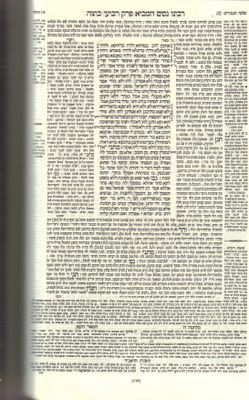Runtime: 20 min
16a
BEGIN PEREK FOUR
Mishna:
המוליך את התבואה לא יפשיל את הקופה לאחוריו אבל מביאה הוא בידו או לפניו
ומתחילין בערימ' התבן אבל לא בעצים שבמוקצה
And who brings grain, he should not lower the box behind him {on his back} but should bring it in his hand or before himself {our gemara lacks "or before himself"}.
{Beitza 30a}
And we may begin with a stack of straw {as fuel} but not with wood which is in the muktzeh {the backyard}.
Gemara:
16b
{Beitza 30a continues}
{Note: each of these deviations will either made it easier to carry or at least not make it more difficult.}
אתקין רב במחוזא
דדרו בדוחקא לידרו בדיגלא
דדרו בדיגלא לידרו באגדא
דדרו באגדא לידרו באכפא
דדרו באכפא נפרוס סודר' עליה
ואם לא איפשר לשנויי שרי
דאמר מר אי אפשר לשנות מותר
Monday, November 27, 2006
Rif Yomi Video Edition -- Beitza Daf 30 (runtime 20 min)
המביא כדי יין ממקום למקום לא יביאם בסל ובקופה אבל מביא הוא על כתיפו או לפניו
If one brings pitchers of wine from place to place {on Yom Tov}, he should not bring them in a basket or a box, but should bring them on his shoulder or before him {in hand}.תנא אם אי אפשר לשנות מותר
A Tanna taught: If it not possible to make a change {from the normal way of moving it} it is permitted.